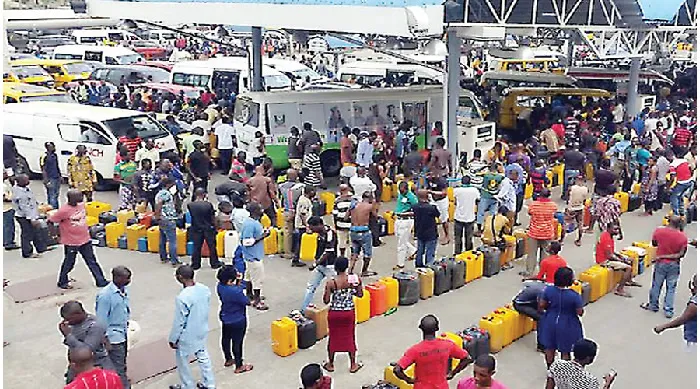The Nigerian National Petroleum Company Limited (NNPCL) has been held accountable by the Independent Petroleum Marketers Association of Nigeria (IPMAN) for the continuous shortage of fuel around the nation.
The scarcity of Premium Motor Spirit (PMS), also called gasoline, has caused numerous problems. According to IPMAN, NNPCL failed to provide its members with sufficient supplies.
With over 3,000 members and authority over a significant number of filling stations in Nigeria, IPMAN has voiced serious worries about the state of affairs. According to Shina Amoo, chairman of IPMAN’s Ore Depot, the NNPCL neglected independent marketers, which resulted in a three-year-old issue.
“There’s nowhere to get supplies. The supply that is on hand is not evenly dispersed. Amoo stated, “We have been raising concerns about this for a long time,” during an interview on Tuesday morning’s Morning Brief on Channels Television.
His focus was on the difficulties encountered by independent merchants, who are dispersed throughout both rural and urban regions yet are often marginalized in the supply chain.
Amoo explained in detail how things have become worse, stating that IPMAN used to have a 70/30 supply ratio depending on their capacity, but that method has since been discontinued. He also took issue with the NNPCL’s preference to supply other organizations at IPMAN’s expense, citing the Depot and Petroleum Products Marketers Association of Nigeria (DAPPMAN) and the Major Oil Marketers Association of Nigeria (MOMAN).
“NNPCL ceased to be sincere and gave up on the distribution scheme. They now prefer to provide others rather than IPMAN. Amoo said, “The volume they offer is insufficient for our needs.
Olufemi Soneye, the Chief Corporate Communications Officer of the NNPCL, responded by saying that the organization is making every effort to address the gasoline supply issues and that the lines should clear by the middle of the week.
Amoo did, however, draw attention to the significant bureaucratic hold-ups IPMAN members experienced while interacting with NNPCL. He pointed out that, instead of taking a week as it used to, the process of loading products after payment now takes three to five months, which drives many members to use private depots that demand higher rates.
Amoo also discussed the effects of the elimination of fuel subsidies, relating the explosive price increases to corruption in the downstream industry. He maintained that fuel prices would fall precipitously as a result of eliminating corruption.
